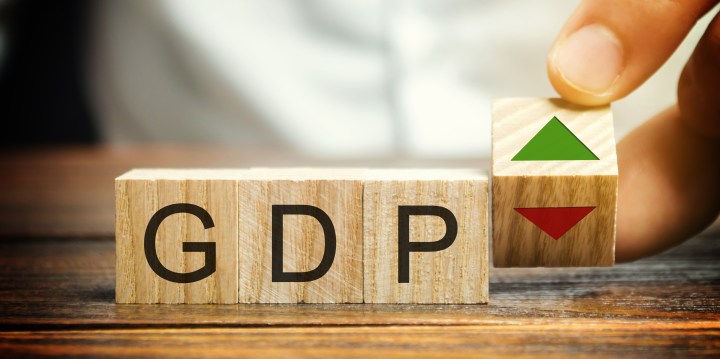AFTER THE BELL
How gross is gross domestic product? Turns out, pretty gross

The fact is that gross domestic product (GDP) is just gross. It’s gross for all kinds of reasons.
GDP is gross because notionally it measures economic activity, on the assumption that increasing economic activity is positive. Personally, when I work harder, I don’t always see it as a positive. Funny that.
It’s gross because actually measuring the economic activity in an economy is fabulously difficult. The reason is pretty simple. You have to decide what contribution a particular industry makes to the economy, for example. At a point in time, horse-drawn carriages were making a big difference to the economy, so if the industry made more carriages, you would shift economic activity up by a lot. Now, if the horse-drawn carriage company makes more carriages, we don’t care so much.
It’s gross because the way it measures things is often odd. For example, if you throw a book through a window and shatter the glass, you would think you might have to subtract the value of the window pane from GDP. But GDP is the measure of economic activity, so the act of breaking the window goes unmeasured. However, if you fix the window, that’s obviously counted, because all of sudden there is economic activity.
On the other hand, if you throw a politician out the window, that would be positive for economic activity, so you would add that to GDP. Just kidding. Please don’t throw politicians or anyone else through the window. My little joke.
GDP is gross because as economies become more service orientated, it becomes even harder to measure. For example, are teachers more productive if their students get higher exam marks? Or are teachers more productive if they teach more students? GDP was designed in the era of industrial production where it was easier to count things made in factories. But what constitutes productivity now in the services sector is harder to measure.
And finally, GDP is gross because it’s not very good at measuring quality rather than quantity. If you look at your cellphone, for example, there was a time when the cellphone was used to make what was once called “a telephone call”. Now it’s a device to increase your status by taking pictures of yourself in foreign countries and putting them on Instagram, and a way to shout at people you don’t know but who desperately need to be shouted at on Twitter. Just counting the number of phones in a country tells you little about their quality. Think how much more efficient your life is because you don’t have to go rushing back to the office to get your emails. Technological change is making GDP harder to measure.
And yet, the notion of GDP is so useful. Cambridge Professor Diane Coyle some time ago wrote an interesting book called GDP: A Brief but Affectionate History, and she defends the idea of GDP despite its weaknesses. Public policy needs GDP for all kinds of reasons: to plan, to change direction, to not change direction. So does the private sector. The public needs GDP too, partly to hold the government accountable. There is a utility in a single number which is easily explicable. But, she says, we shouldn’t rely on it so much, given its imprecision.
GDP and its drawbacks has become a hot topic in the US because the country has just notched its second consecutive quarter of GDP contraction, which came in at an annualised rate of -0.9%. Most economists would classify two consecutive quarters of contraction as a recession. But in the US, it’s not a recession until the National Bureau of Economic Research says it’s a recession.
So now there is a big political argument in the US about whether or not there is a “recession”, because just the word ‘recession’ tends to push countries into, you guessed it, a recession. SA has done the same in the past, calling two consecutive quarters of contraction “a technical recession”. But, obviously, there is nothing “technical” about people struggling to pay for their groceries.
But in fact, in the US, it is kinda weird because there is near record-low unemployment. Just how crazy things are is illustrated by the minutes of the US Fed’s June meeting in which it was pointed out that GDP and gross domestic income had been giving “conflicting signals”. As a consequence, the minutes say, “participants judged that uncertainty about economic growth over the next couple of years was elevated”.
Without wanting to oversimplify, what that means in plain language is that they have absolutely no clue what is going on, because while GDP is declining, wages are going up. WTF. The fact is that the tools we use to measure economic activity are just not working very well. This may be a consequence of the strange times, and a rebalancing effort following the Covid crisis – or they could be permanently compromised.
For investors, this means something very simple: expect the unexpected. BM/DM


















 Become an Insider
Become an Insider
Comments - Please login in order to comment.